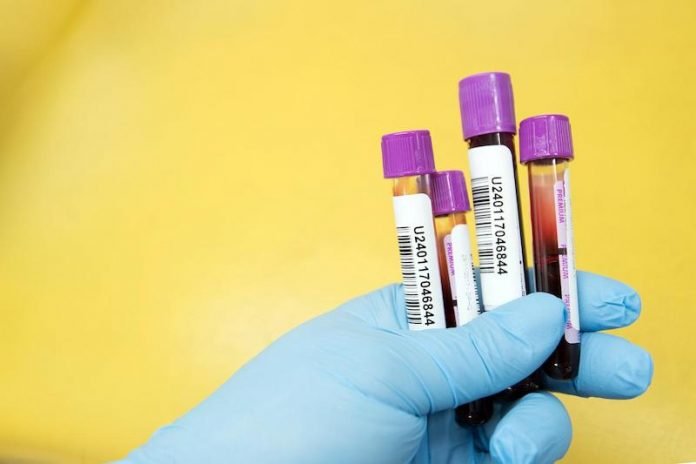
Scientists from Boston University and elsewhere found a blood biomarker that could help identify people with the earliest signs of dementia, even before the onset of symptoms.
The research is published in the Journal of Alzheimer’s Disease and was conducted by Emer McGrath et al.
In the study, the team measured blood levels of P-tau181, a marker of neurodegeneration, in 52 cognitively healthy adults, from the U.S.-based Framingham Heart Study.
The blood samples were taken from people who had no cognitive symptoms and who had normal cognitive testing at the time of blood testing.
The team found that elevated levels of P-tau181 in the blood were associated with a greater accumulation of ß-amyloid, an abnormal protein in Alzheimer’s disease, on specialized brain scans.
These scans were completed on average seven years after the blood test.
Further analysis showed the biomarker P-tau181 outperformed two other biomarkers in predicting signs of ß-amyloid on brain scans.
The team says that P-tau181 has the potential to help us identify individuals at high risk of dementia at a very early stage of the disease before they develop memory difficulties or changes in behavior.
A blood test measuring P-tau181 levels could potentially be used as a population-level screening tool for predicting the risk of dementia in individuals in mid to late life, or even earlier.
The identification of a biomarker also points to the potential for a population screening program.
This research also has important potential implications in the context of clinical trials.
Blood levels of P-tau181 could be used to identify suitable participants for further research, including in clinical trials of new therapies for dementia.
Researchers could use this biomarker to identify those at a high risk of developing dementia but still at a very early stage in the disease when there is still an opportunity to prevent the disease from progressing.
If you care about dementia, please read studies that vitamin deficiency may lead to dementia, and findings of new drug to treat Lewy body dementia.
For more information about brain health, please see recent studies that Mid-life heart disease prevention may prevent later dementia, and results showing nightly sleep of 5 hours, less, may increase risk of dementia.
Copyright © 2022 Knowridge Science Report. All rights reserved.



